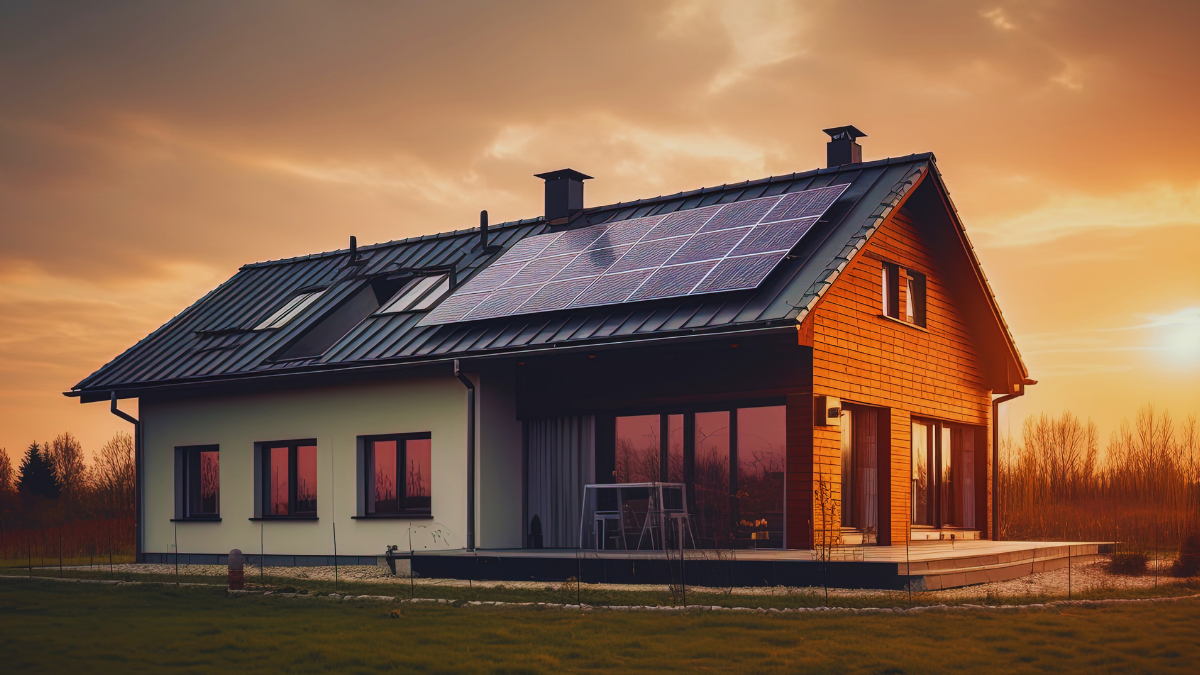Solar panels, commonly known as photovoltaic (PV) systems, have transformed how we create and use electricity. Solar panels, which harness the sun’s plentiful energy, provide a renewable and environmentally beneficial alternative to traditional fossil fuel-based energy sources.
In this post, we will go deeply into the topic of solar panels, answering common concerns, investigating their benefits, dispelling myths, and providing practical advice for individuals considering solar energy adoption.
1. What Are the Four Advantages of Solar Panels?
Cost-savings:
Solar panels save electricity bills by a considerable percentage and may even eliminate them. With time, it becomes apparent that the savings that a person may make on energy fly in the face of the high initial investment outlay in the solar panel system.
Environmental impact:
Solar energy is free, clean, and renewable, keeping carbon footprints at bay. When households and businesses use this power category, they contribute to the deceleration of greenhouse gas emissions.
Energy Independence:
Solar panels offer a measure of energy independence with less dependence on fossil fuel and grid electricity. This may be especially helpful in places with high electricity prices or a higher incidence rate of power outages.
Increased property value:
A solar system provision usually makes the price of a home higher compared to one without a system. Potential buyers realize that using solar is a long-term savings and an environmental contribution and, therefore, purchasing a property with solar will be the ultimate reward.
2. Is solar worth it if you have gas?
Yes, solar panels can still be worth it, even if you have gas. While gas may cover heating and some appliances, electricity is being used for lighting, cooling, electronics, and other electrical appliances. These electricity costs can be offset by using solar panels to even out the utility bills, save a few dollars in the long run, and remain sustainable for the environment. Moreover, solar power can assist in using gas in that, in general, the energy cost might generally be reduced, thus reducing dependency on fossil fuels.
3. How Efficient Is Solar Power?
The efficiency of solar power relies on technology, location, and installation characteristics. Nowadays, newly manufactured solar panels generally range from 15 to 22 percent. Thus, they can convert 15% to 22% of the sunlight falling on them into useful electric power. Many people will find this percentage relatively low; however, constant technological improvement results in increasing efficiency numbers, hence making solar energy all the more viable.
4. Are solar panels going to be a good step?
Generally, there are some excellent reasons why solar panels will be a good step:
- Financial Savings: A low or no bill in the future.
- Environmental Benefits: Reduced carbon footprint and less dependence on fossil fuels.
- Energy Reliability: Less dependence on foreign oil and more control over your energy.
- Increased Property Value: Improve the property appeal and property value of your properties with solar panels.
However, installing solar panels is an investment and should be considered based on several factors, like the availability of sunlight in your area, the roof, and the finances available.
5. Do Solar Panels Work on Cloudy days?
Technically, they do work on those days. How well they work depends on the amount of cloud coverage. They do, in fact, produce power, as the panels do receive diffused sunlight. The power they make depends on the density of the clouds but, on average, produces about 10–25% of the energy that would be made on a clear, sunny day.
6. Do Solar Panels Work at Night?
No, the solar panels do not work at night as there will be no sunlight, which is the primary source of their power. However, energy harnessed in the daytime can be stored, with some solar batteries used at night and in case of minimal sunlight. Also, with net metering, the excess generated energy can be fed back to the grid, whose credit one can use at night.
7. How reliable is solar energy?
Dependable solar energy with adequate battery storage and systemic design:
- Predictability: Solar power is produced predictably based on sunlight patterns on both a daily and
- Low maintenance: Maintenance means for solar panels are low, with an average life above 25 years.
- Grid independence: slashes utilities’ reliance and ensures perfect energy security. This is further enhanced by the continuous innovations and technological strides in energy storage solutions.
8. Which solar company is best in Kenya?
Whether you’re a homeowner trying to cut energy expenses, a business owner seeking sustainability, or simply interested about solar power, reach out to us for all solar energy and installation solutions. Kindly, call us at 0707075702 or send us an email at info@refinareastafrica.com


